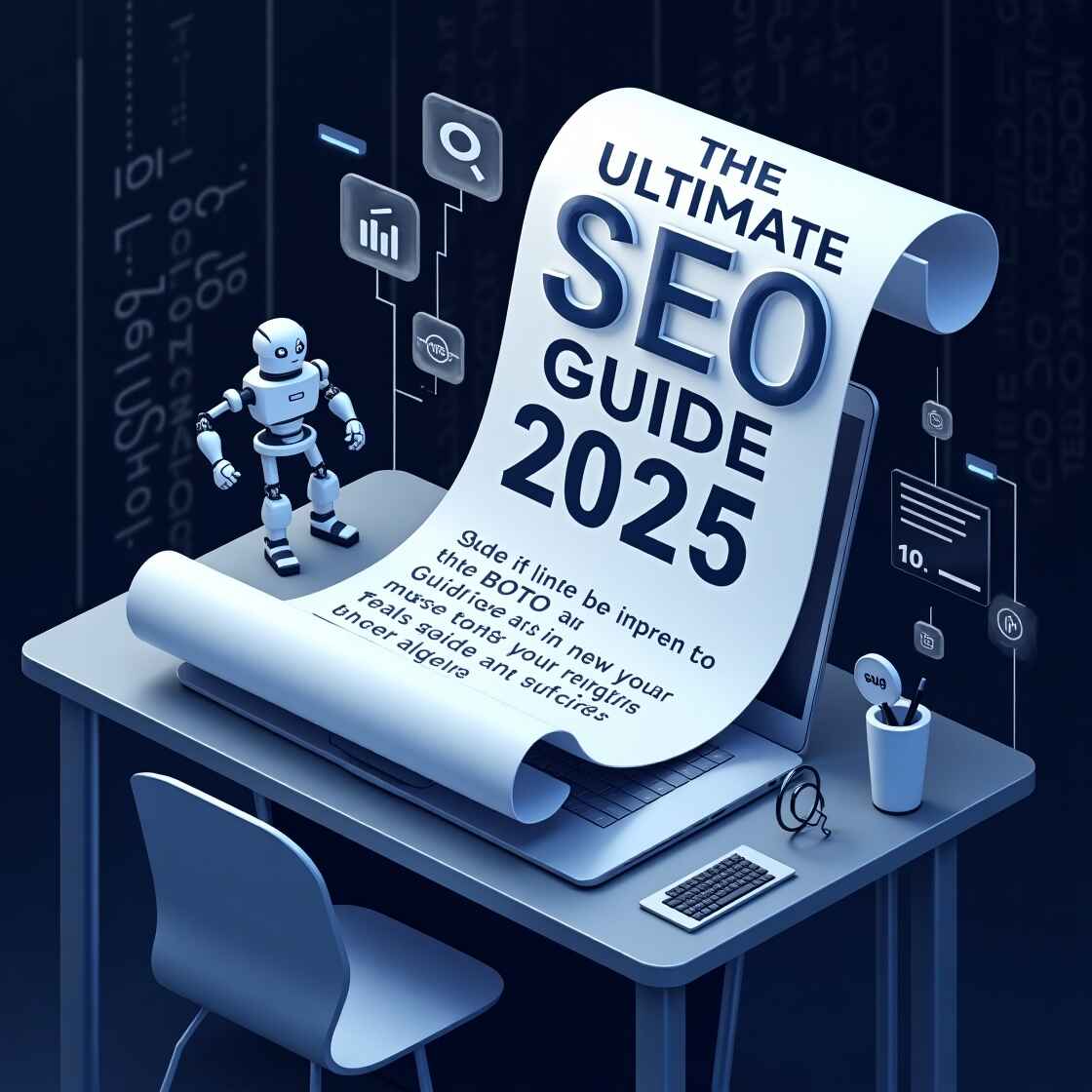
SEO Course 2025: The Comprehensive Manual for Off-Page & On-Page SEO (No AI, Just Genuine Skills)
This SEO course 2025 will teach you everything about on-page and off-page SEO.
Introduction: The Reasons SEO Is Still Important in 2025
One thing has remained constant in a world where websites are expanding more quickly than ever before: the necessity of being found on Google. The most dependable long-term traffic-boosting tactic is still search engine optimization, or SEO. This comprehensive SEO course for 2025 will help you become an expert in both on-page and off-page SEO without depending on AI tools, regardless of whether you manage a blog, business website, or e-commerce store.
Section 1: Everything You Can Control on Your Website: On-Page SEO
Optimizing the components of your website so that search engines can properly comprehend, crawl, and index your content is known as on-page SEO.
- Research on Keywords (without AI)
Selecting the appropriate keywords is the cornerstone of SEO. Even in 2025, expert SEOs continue to find lucrative keywords using cutting-edge tools.
Research on Top Keyword Tools:
Ahrefs: To identify parent topics, volume, and keyword difficulty, use the Keywords Explorer.
SEMrush: The Keyword Magic Tool provides a wealth of SERP insights and keyword recommendations.
Moz: For a clear picture of search volume and competition, use the Keyword Explorer.
Ubersuggest: Free and useful for new users.
For AdWords users, Google Keyword Planner is dependable.
Tips:
Pay attention to long-tail keywords (e.g., “how to do on-page SEO for blogs”)
Examine the intent of the keywords (transactional, informational, etc.)
Use SEMrush or Ahrefs to look up competitor keywords
- Meta Descriptions and Title Tags
These appear first in search results for both Google and users. Both should naturally contain your primary keyword.
Title Tag: 50–60 characters
150–160 characters for the meta description
Make use of action words such as “Learn,” “Free Guide,” and “Step-by-step.”
- Content Structure & Headings
Make use of the appropriate hierarchy:
H1: One (main title) per page
H2: Principal segments
H3: Sections
Don’t stuff your content with keywords; instead, make it readable and natural.
- Optimization of URLs
Use the focus keyword in clear, readable URLs.
Excellent: example.com/seo-course-2025
Bad: example.com/post?id=123
- Optimization of Images
Depending on how they are used, images can either improve or detract from SEO.
Make use of filenames that are descriptive (seo-guide-chart.png)
Include pertinent keywords in the alt text
Reduce the size of images to speed up loading (use ShortPixel or TinyPNG)
- Linking Internally
To assist readers and search engines in comprehending the structure of your website, include links to your other blog entries.
Make use of the contextual anchor text
Learn SEO in 2025 with This Complete Course

Do not repeatedly link to the same keyword
- Design That Is Mobile-Friendly
Mobile devices account for more than 70% of all searches. Make use of responsive themes, and use Google Mobile-Friendly Test to test your website. - Optimization of Site Speed
Rankings are destroyed by a slow website.
Make use of caching (WP Rocket or LiteSpeed Cache)
Turn on lazy loading
Minify JS and CSS
Use a quick and safe provider to host
- Markup for Schemas
Schema facilitates search engine comprehension of your content. Add using Yoast SEO or Rank Math SEO:
Schema for Articles and FAQs
The breadcrumbs
- Quality of Content (E-E-A-T)
Google values:
Experience
Expertise
Trustworthiness
Authority
Write based on your experience. Include contact pages and author biographies. Refrain from stealing content from other blogs.
Section 2: Off-Page SEO: Establishing Credibility Outside of Your Website
Using backlinks and other external signals to improve your website’s reputation is the goal of off-page SEO.
- Building Backlinks
The most important ranking factor in Google’s algorithm is backlinks. Prioritize quality over quantity.
Effective Techniques for Creating Links:
Writing content for other blogs in your niche is known as guest posting
Broken Link Building: Look for broken links on other websites and recommend your content
Skyscraper Method: Produce superior content and advertise it
News releases: To acquire authority links, publish content that is noteworthy
- Sharing on Social Media
Post your blog entries on Pinterest, LinkedIn, Twitter, and Facebook
Include buttons for social media sharing on your website
Participate in blogging communities and groups to naturally increase shares
- Marketing on Reddit and Quora
When appropriate, include links to your blog in your responses to questions that are pertinent to your niche.
Drop your link after adding value
Steer clear of spammy conduct
- Embeds on YouTube
Create videos from your blog posts and then reintegrate them into your site.
Aids in time-on-page and engagement
YouTube appears in Google’s search engine results page as well
- Business Listings (Local SEO)
Establish a Google Business Profile if you want to reach local customers.

contact us on nonpta73@gmail.com